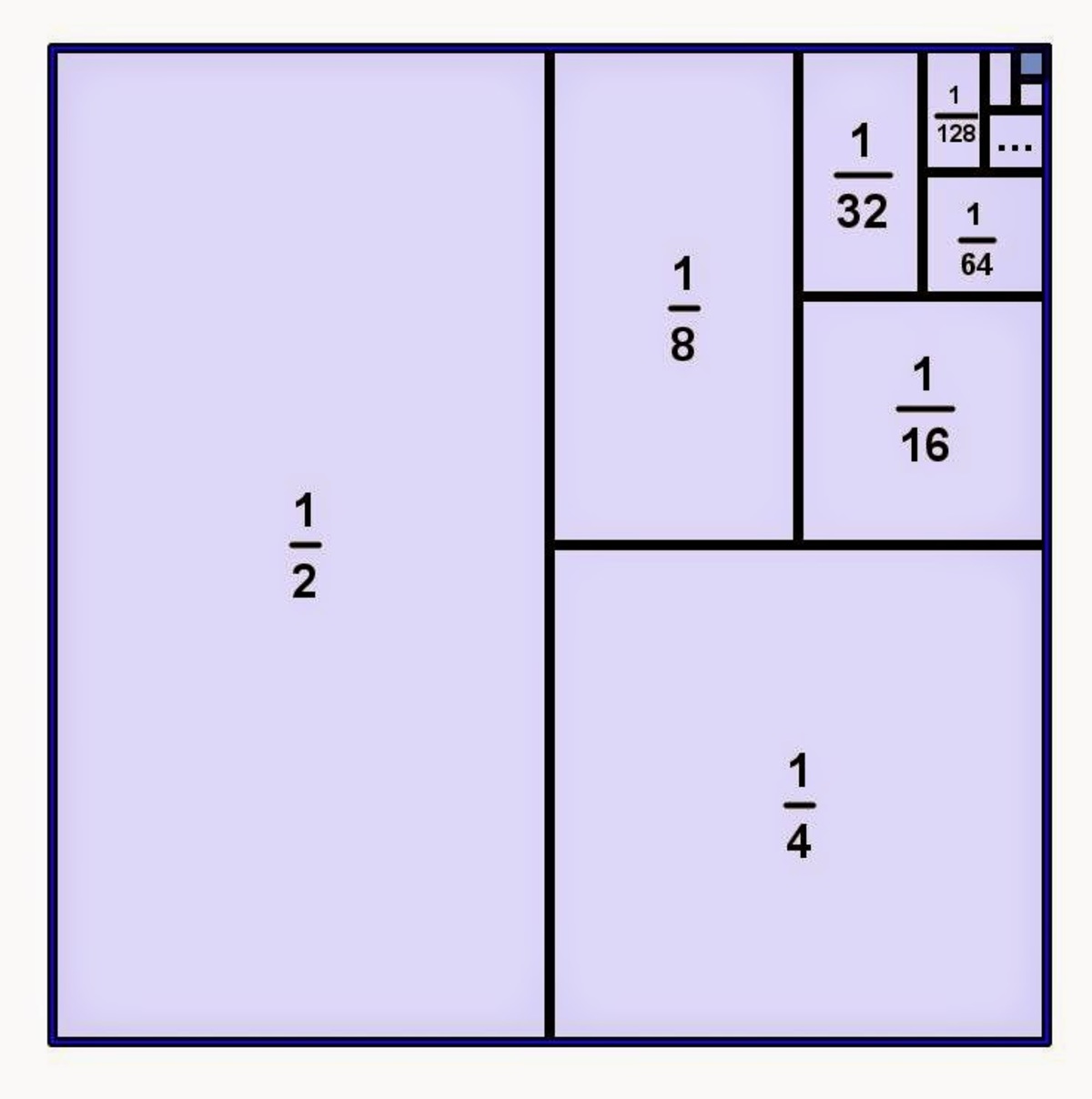Another Summation (Part 2)
m = 1 ∑ ∞ 2 m m 2
The summation above is equal to b a + c , where a , b , c are integers, with a and b positive and gcd ( a , b ) = 1 , and 0 ≤ c < 1 . Find a + b − c .
P.S. Don't get tricked!
Try another problem on my set Let's Practice
The answer is 7.
This section requires Javascript.
You are seeing this because something didn't load right. We suggest you, (a) try
refreshing the page, (b) enabling javascript if it is disabled on your browser and,
finally, (c)
loading the
non-javascript version of this page
. We're sorry about the hassle.
2 solutions
Let m = 1 ∑ ∞ 2 m m 2 = S .
The series with index m = 0 has a 0 = 0 , so they are the same series:
S = m = 1 ∑ ∞ 2 m m 2 = m = 0 ∑ ∞ 2 m m 2
We also know that we can manipulate the index if we change n t h term:
S = m = 1 ∑ ∞ 2 m m 2 = m = 0 ∑ ∞ 2 m + 1 ( m + 1 ) 2
Thus,
S = m = 0 ∑ ∞ 2 m m 2 = m = 0 ∑ ∞ 2 m + 1 ( m + 1 ) 2
Now let's do some rewriting:
S = 2 S − S
= m = 0 ∑ ∞ 2 m ( m + 1 ) 2 − m = 0 ∑ ∞ 2 m m 2
= m = 0 ∑ ∞ 2 m 2 m + 1
= m = 0 ∑ ∞ 2 m 2 m + m = 0 ∑ ∞ 2 m 1
= 2 m = 0 ∑ ∞ 2 m 1 + m = 0 ∑ ∞ 2 m 1
= 4 + 2 = 6
m = 1 ∑ ∞ 2 m m 2 = 6
Since 0 ≤ c < 1 and c must be an integer, c = 0 . 6 = 1 6 , so a = 6 and b = 1 .
a + b − c = 7
Nice solution, but I am a bit confused about the equality between line 4 and 5 counting from S=2S-S. What happened to m in the first term of the 4th line?
Log in to reply

You can see by this proof without words that
m = 0 ∑ ∞ 2 m 1 = 2
m = 0 ∑ ∞ 2 m 2 m is twice the sum of m = 0 ∑ ∞ 2 m 1 ; you can easily check this using partial sums.
We know that for − 1 < x < 1 :
m = 0 ∑ ∞ x m m = 1 ∑ ∞ m x m − 1 m = 1 ∑ ∞ m x m m = 1 ∑ ∞ m 2 x m − 1 m = 1 ∑ ∞ m 2 x m ⟹ m = 1 ∑ ∞ 2 m m 2 = 1 − x 1 = ( 1 − x ) 2 1 = ( 1 − x ) 2 x = ( 1 − x ) 3 1 + x = ( 1 − x ) 3 x ( 1 + x ) = 8 1 2 1 ⋅ 2 3 = 6 Differentiating both sides w.r.t. x Multiplying both sides by x Differentiating both sides w.r.t. x Multiplying both sides by x Putting x = 2 1
⟹ a + b − c = 6 + 1 − 0 = 7